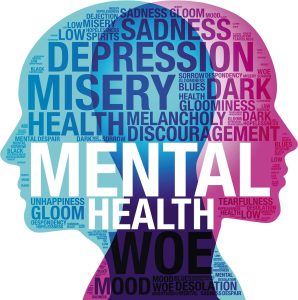In the realm of mental health and well-being, music therapy emerges as a profound and effective tool harnessing the therapeutic power of music to promote healing and happiness. This article delves deeper into specific techniques, addresses potential limitations, and includes personal testimonials to illustrate the profound impact of music therapy on mental wellness.
The Healing Power of Music

Throughout history, music has been revered for its ability to evoke emotions, stimulate memories, and foster connections. Scientifically, music engages various brain regions associated with emotions, reward, and cognition, making it a versatile tool in therapeutic settings. Music therapy, facilitated by trained professionals, employs structured interventions to address psychological, emotional, and social needs, enhancing overall well-being.
Deeper Exploration of Specific Techniques

Music therapy encompasses a variety of evidence-based techniques tailored to individual needs:
Lyric Analysis: Through analyzing song lyrics, individuals can explore and express emotions, facilitating self-awareness and emotional processing.
Improvisation: Encouraging spontaneous musical creation allows for expression without the constraints of verbal communication, promoting creativity and emotional release.
Group Drumming: Group drumming sessions foster social interaction, synchronization, and a sense of unity through rhythmic expression, benefiting interpersonal skills and emotional regulation.
Each technique is supported by research demonstrating its efficacy in enhancing emotional regulation, reducing anxiety, and improving overall mental health.
Addressing Potential Limitations or Challenges
While music therapy offers diverse benefits, it’s essential to acknowledge potential challenges:
Accessibility: Access to trained music therapists and specialized programs may vary, impacting availability in certain regions or communities.
Individual Preferences: Personal musical tastes and cultural backgrounds influence the effectiveness of interventions, necessitating therapists to adapt approaches accordingly.
Professional Training: Effective implementation of music therapy techniques requires specialized training and expertise to ensure safe and therapeutic practices.
Recognizing these factors ensures a balanced perspective on the application and impact of music therapy in diverse settings.
Inclusion of Personal Testimonials
Personal stories highlight the transformative impact of music therapy:
Sarah, 32, found solace in lyric analysis sessions, where exploring song lyrics helped her navigate grief and find healing after a personal loss.*
John, 45, experienced profound stress relief through group drumming, describing how the rhythmic beats helped him reconnect with joy and community.*
These testimonials underscore the personal relevance and effectiveness of music therapy in real-life scenarios, emphasizing its role in fostering resilience and emotional well-being.
Conclusion

Music therapy emerges as a dynamic and accessible approach to enhancing mental wellness, offering tailored interventions that resonate deeply with individuals’ needs and preferences. By exploring specific techniques, addressing potential limitations, and sharing personal testimonials, this article illuminates the transformative power of music therapy in promoting happiness and healing. Embracing music as a therapeutic tool empowers individuals to cultivate emotional resilience, foster connections, and embark on a journey towards holistic well-being, guided by the harmonious rhythms of therapeutic sound.




